Train operators set to make new pay offer to unions
- Published
- comments
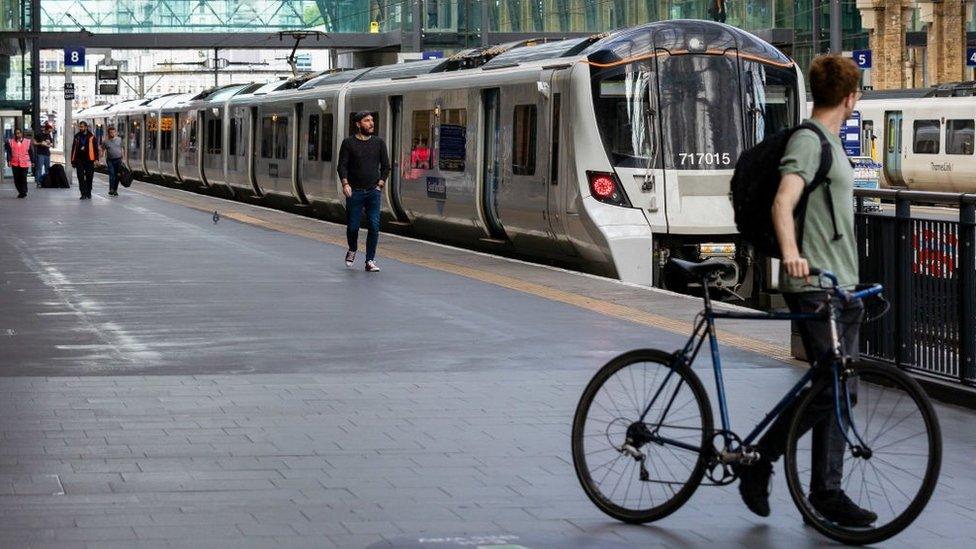
Train operating companies are set to make a new offer to striking rail workers this week, after receiving a revised mandate from the government.
The Rail Delivery Group (RDG), representing the firms, needs government backing for any deal.
RDG chair Steve Montgomery said he had received a revised mandate, which would be "used" in talks with the TSSA and RMT unions on Thursday.
Details could not be shared for confidentiality reasons, he said.
Train operators and unions are at loggerheads over pay and conditions.
The new offer could represent a breakthrough if the government's position has changed enough to satisfy unions' demands.
However, unions may still reject any offer that comes with what they see as unacceptable changes to working practices and conditions attached.
Last week strikes led to widespread service cancellations across the network, and union leaders warned members had voted to continue their industrial action, which could continue for months. But currently no further strikes are scheduled.
Mr Montgomery told parliament's transport select committee on Wednesday he believed there was an opportunity to "try and move forward" with the RMT union, the largest rail union.
"I think we're within reasonable areas of where I think we can get a deal. But we have to work through it with them," he said.
However he acknowledged the dispute with rail drivers' union Aslef was further behind.
"We need to do more work with [Aslef] and try and get back round the table," he said.
Aslef leader, Mick Whelan, told MPs on the select committee he believed the two sides were "further away than we started".
When asked by MPs how close a resolution was on a scale of one to 10, Mr Whelan said: "I think you can include zero."
On Friday the RDG made their first official offer to drivers, a backdated 4% pay rise for 2022 and another 4% rise in 2023, contingent on changes to working practices.
But Mr Whelan said he could not recommend "any one element of it", adding it could "destroy the ability to go back to talks in future".
The Associated Society of Locomotive Engineers and Firemen (Aslef), representing train drivers, has previously said it was "chasing a pay rise that at least puts a dent" in the impact from rising prices, after inflation rose above 10%.
Unions representing workers other than drivers, including the Transport Salaried Staffs Association (TSSA) and the Rail, Maritime and Transport (RMT) union, are also campaigning for better pay and conditions for their members.
Frank Ward, interim general secretary of the TSSA, told the committee hearing he agreed with Mr Whelan that agreement was still further away than ever.
However, Mick Lynch, general secretary of the RMT, said the prospects of a deal depended on discussions, adding "until we get an agreement, we're not close to it".
He said "we're a long way on pay", highlighting that offers made so far were well below inflation. Last year the RMT rejected rail companies' offer of 8% over two years.
Mr Lynch also said conditions attached to the offer from train companies - which included ticket office closures and the expansion of driver only trains, which the RMT says threatens the role of guards - involved "such profound changes that they'll be very difficult for any union to accept".
Mr Montgomery, defended the RDG's plan to have more drivers operating train doors. He said it was aimed at improving punctuality and reliability, and not about removing other staff altogether. There would be a second person on board "on a lot of occasions" he said.
The industry was not trying to cut wages or increase workers' hours, Mr Montgomery said. Instead it wanted to improve productivity, making the railway more cost effective, he said.
Tim Shoveller, chief negotiator for Network Rail, also struck an optimistic note, rating his organisation's closeness of a deal with the RMT as seven out of 10.
In December Network Rail, which owns and operates the UK's rail infrastructure, offered to raise pay for its staff by around 9% over two years, but with changes to working conditions attached.
Mr Shoveller said he believed many staff felt they had not had enough time to consider the proposal before voting.
He said some employees had already returned to work meaning more trains would run during any future RMT walkouts "because our capability to do that is growing".
Only a couple of thousand more RMT members at Network Rail would need to vote in favour of the deal that had been offered, for it to meet the threshold for acceptance, he said.
Network Rail was not seeking a revised mandate from the government Mr Shoveller said, as its existing offer had been based on what the organisation could afford.
Related topics
- Published31 January 2023
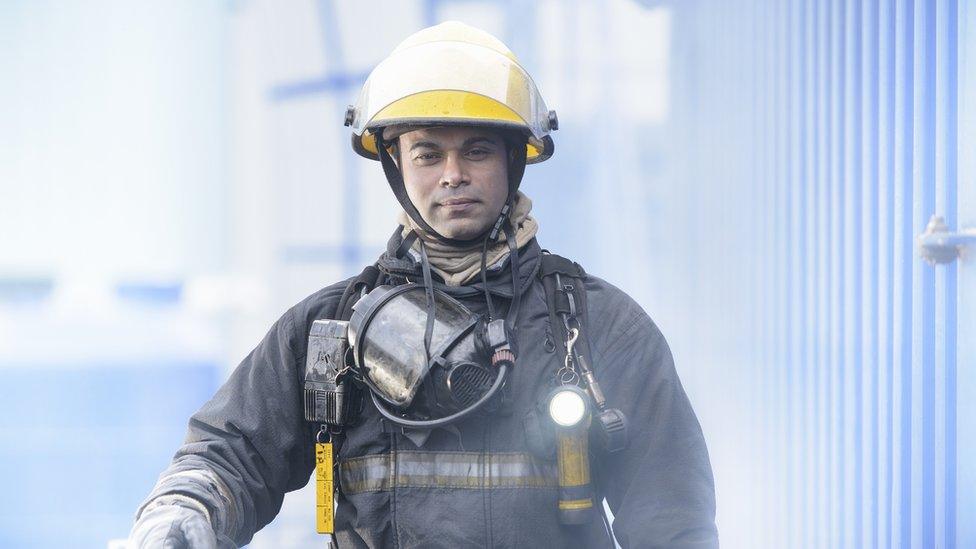
- Published1 August 2023

- Published3 January 2023
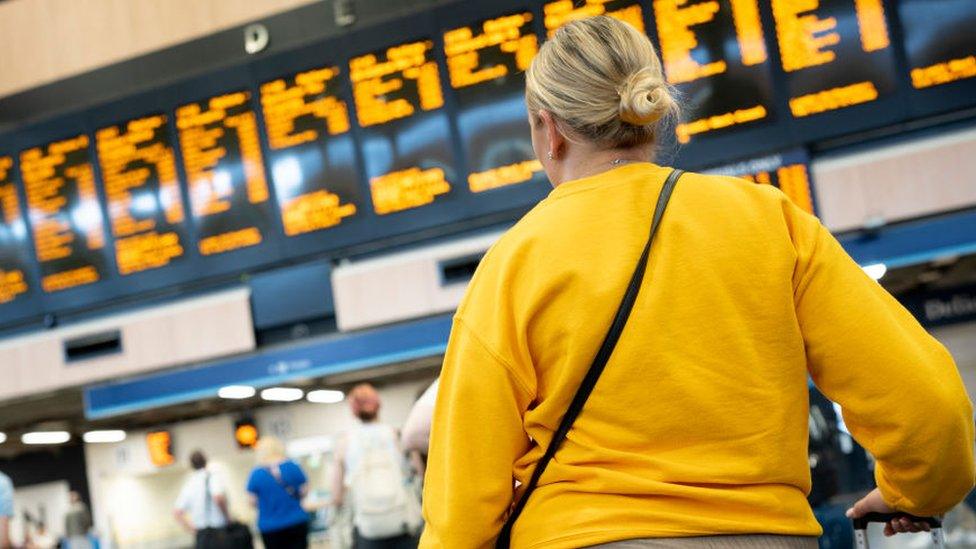
- Published7 January 2023
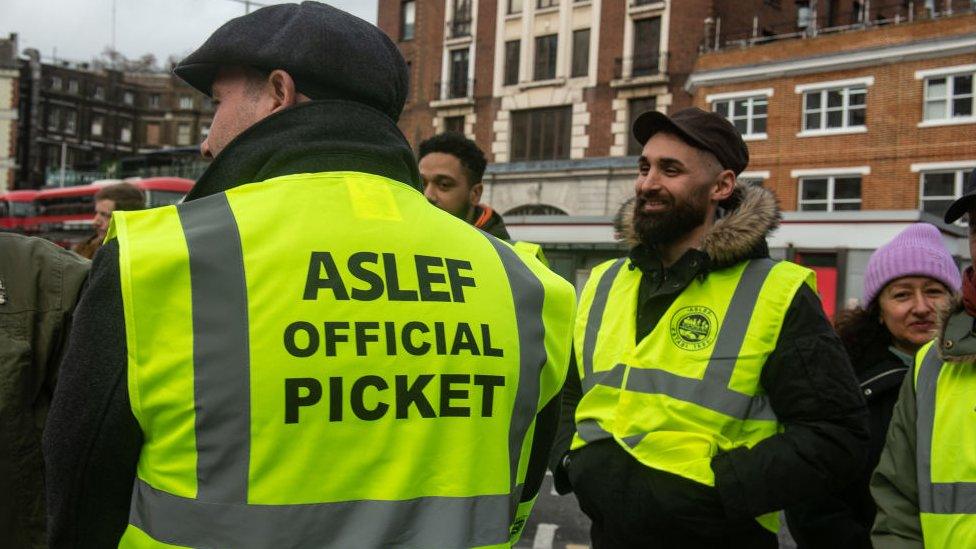
- Published3 January 2023
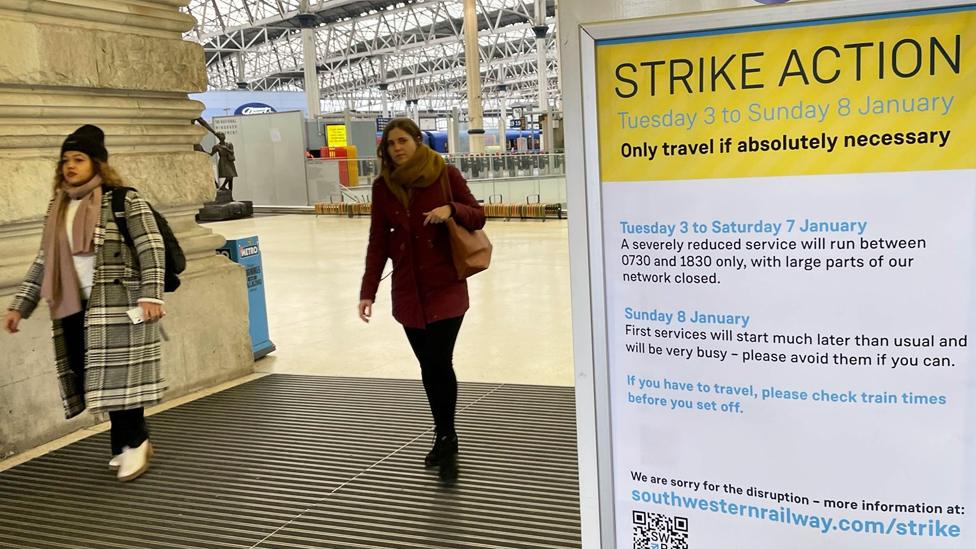
- Published9 May 2024
